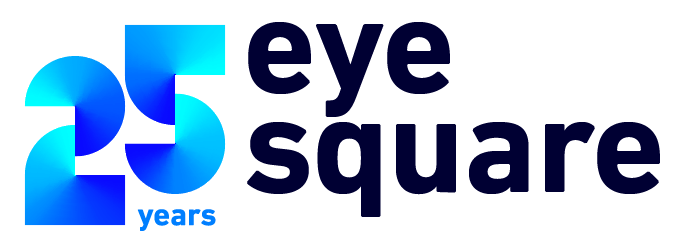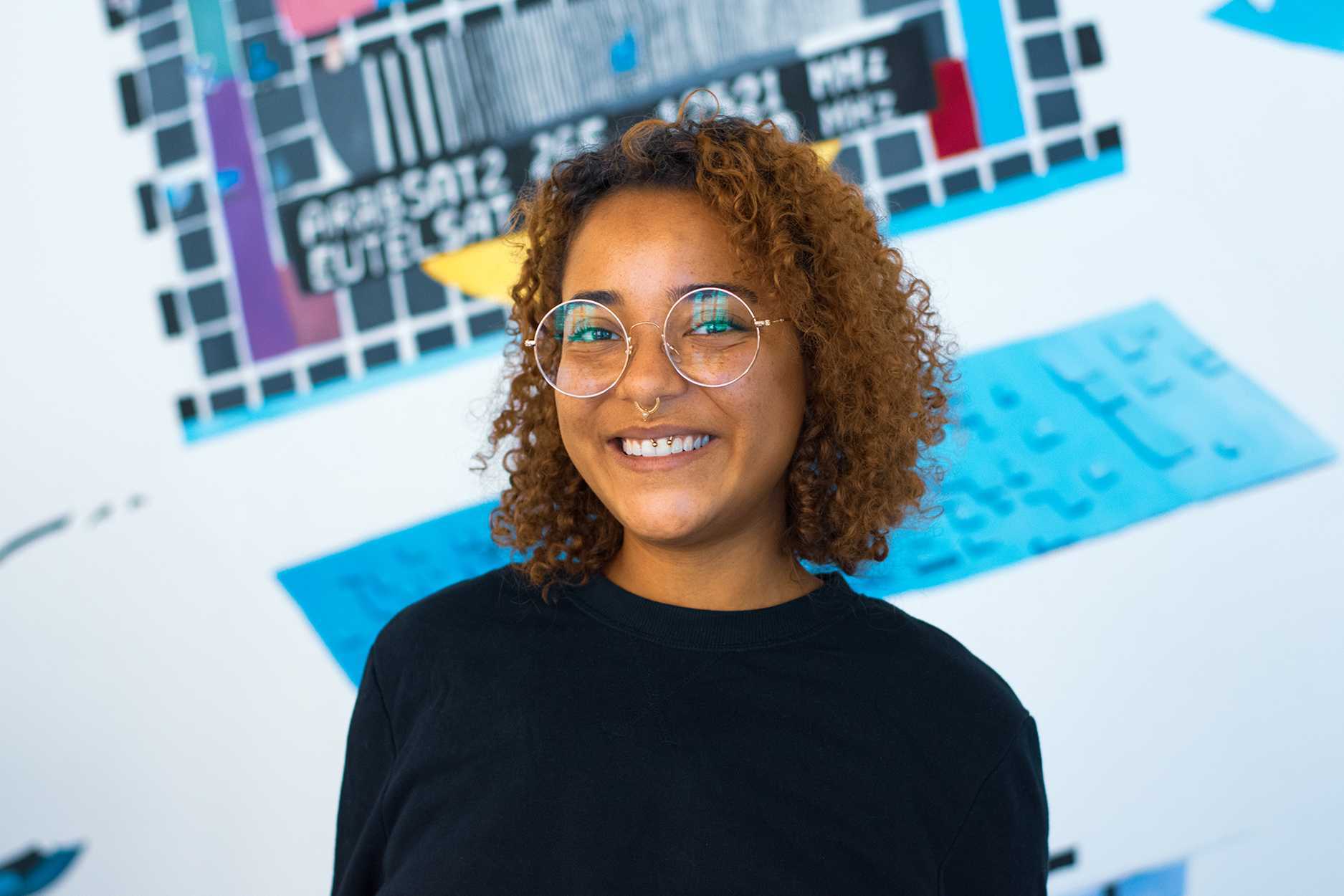29 Jul Teams at eye square | Interview with Anita Yona Chenga
My Work Experience at eye square
About a year ago, Anita joined the Brand & Media Team at eye square as a trainee. In this interview, she tells you more about her experiences as part of the team, her tasks and projects, and what she particularly likes about eye square’s working culture.
Since when have you been working at eye square, in which team, which tasks have you taken on there, and what do you find particularly exciting?
Approximately one year ago, in the middle of the COVID-19 pandemic, I started working on the Brand & Media Team at eye square. Like most of the people here, I started on the team as a trainee before becoming a research consultant.
Since then, I have experienced a wide range of tasks- qualitative studies and quantitative studies. A large part we did online-we had less Lab studies-of course, that was due to the COVID-19 situation.
Additionally, I also worked on internal topics in our team, including knowledge management, as an example. We collected and restructured internal knowledge, so the team could more easily access it.
The Brand & Media Team supported a university project about sustainability labels that I found exciting. I supported this collaboration through the creation of questionnaires; during the conception of the project, I assisted with set-up, programming, panel communication, and planning.
What topics do you generally deal with in the Brand & Media Team?
Our team name says it all-we deal with brands and media. What we typically investigate is the topic of brand image and impact, along with testing creations. We look at advertising media and compare how they are received by the audience. From time to time we also work on basic projects, which I’ve always found exciting.
Do you have a good team spirit?
I really like my team. Despite the different hierarchies, you don’t have the feeling that you only have to do the most basic tasks. We work as equals. That was a very positive experience for me when I was still very new at eye square. Someone who may have been with the company for ten years still listens to you when you bring in new ideas, and of course, I am also open to the suggestions of experienced employees.
Through COVID-19, I have more of a virtual exchange with my colleagues, but we have a team day once a week, and we all meet in the office. Sometimes we sit together in the evening and have a glass of champagne to round off the working day, for example. We also have joint socials, such as an internal summer party, or go out to the pub in the evening. We recently took a raft out on the Spree, some of us went swimming there, and then we went out for a nice meal.
As a research consultant, do you feel you can positively influence your clients’ experience?
By making different suggestions to clients and offering different alternatives, specifically when I suggest other methods and approaches in addition to the ones they originally wanted, I feel like I have influence. I think I also have an influence on the relationship structures that develop between us and our customers.
Our interactions and connections with regular clients become, over time, more of a friendly relationship, especially when projects together span over a long period of time. It’s also nice when you get feedback and a positive response from customers.
You studied before. Does your professional knowledge help you with the project work in the eye square team?
Yes, very much, however, I would say my studies have less of an impact. Before my time as a trainee, I also worked in a marketing agency. At eye square, when you are there for a longer period of time, you realize that the psychological background is very important for the work as a research consultant. Many of them have a bachelor’s or master’s degree in psychology.
I started out with a business degree; clients in our team are often agencies or marketing departments. My experience has helped me to better understand the other perspective, i.e., that of the customer and their concerns and needs. I see that as a great advantage.
Which approaches do you find particularly interesting in your work?
There are two components to eye square: one is the technical side, such as the brand react or eye tracking on the desktop or online, and the other is the methodological implicit side. That is everything that is not explicitly expressed in the questionnaire or interview. With eye tracking, we also include other data as a basis for research.
I have a study in the back of my mind that is based on interviews on the one hand and allows participants to simply surf the Internet on their own devices on the other. The moment when we compared the interviews and questionnaire, i.e., what was said, with the implicit data, i.e., the unconscious behavioral data from the eye-tracking, was really exciting.
You want to go back to study now, what did you learn during your time at eye square?
I’ve learned a tremendous amount here. Personally, I believe I have grown significantly more. You also learn a lot from the work itself; I’ve become much more technically proficient, and I’ve learned to use online research tools more effectively. Because I now have a solid foundation, I believe I will be able to understand and learn other programs more quickly in the future.
I also got a better view of the issues that companies are dealing with and that they want to clarify with the help of market research. This will definitely help me with my marketing master’s degree.
Finally, I’d like to mention how knowledge is shared in our team on a regular basis. At our company, it’s called “Tuesday Transfer”, and once a week, one of the team members presents something new in terms of content. This does not always have to do with the actual project work, but it is frequently very interesting thematically. We received input on the topic of “Brand Love” this week, for example, through the presentation of a study.

